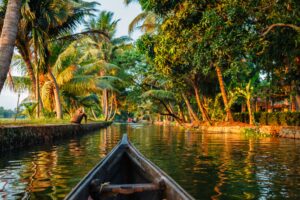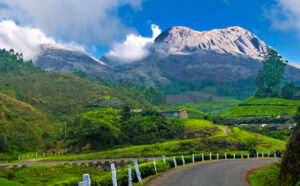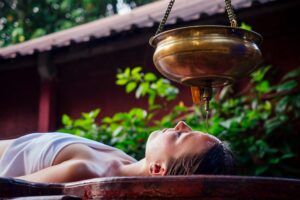Discovering Kerala: The Land of Backwaters, Beaches, and Culture
Nestled on the southwestern coast of India, Kerala, often referred to as “God’s Own Country,” is a tropical paradise renowned for its serene backwaters, lush greenery, tranquil beaches, and vibrant culture. This blog post takes you on a journey through the diverse attractions and experiences that Kerala has to offer.
Introduction to Kerala
Geography and Climate
Kerala is located on the Malabar Coast of India, bordered by the Arabian Sea to the west and the Western Ghats to the east. The state enjoys a tropical climate throughout the year, with moderate temperatures and two distinct monsoon seasons— the Southwest monsoon from June to September and the Northeast monsoon from October to November.
Culture and Traditions
Kerala is known for its rich cultural heritage, influenced by a blend of Hindu, Christian, and Islamic traditions. The state is famous for its classical arts such as Kathakali (classical dance-drama), Mohiniyattam (classical dance form), and traditional martial arts like Kalaripayattu. Festivals like Onam, Vishu, and Thrissur Pooram showcase the vibrant culture and customs of the people of Kerala.
Top Attractions in Kerala
1. Backwaters of Kerala
The backwaters of Kerala are a network of interconnected canals, rivers, lakes, and lagoons that stretch along the coast. A houseboat cruise through the backwaters of Alleppey (Alappuzha) or Kumarakom is a must-do experience, offering glimpses of rural Kerala life, lush greenery, and peaceful surroundings.
2. Kerala Beaches
- Kovalam Beach: Known for its crescent-shaped beach with shallow waters, ideal for swimming and sunbathing.
- Varkala Beach: Famous for its cliffside views and natural spring waters believed to have medicinal properties.
- Marari Beach: Offers a tranquil setting with palm-fringed shores and a relaxed atmosphere.
3. Hill Stations
- Munnar: A popular hill station known for its tea plantations, mist-covered hills, and stunning landscapes.
- Wayanad: Offers lush greenery, wildlife sanctuaries, and adventure activities like trekking and wildlife safaris.
4. Wildlife Sanctuaries and National Parks
- Periyar Wildlife Sanctuary: Known for its elephants and tiger reserves, offering boat cruises on the Periyar Lake.
- Eravikulam National Park: Home to the endangered Nilgiri Tahr and a variety of flora and fauna.
5. Historical and Cultural Sites
- Fort Kochi: Known for its colonial architecture, Chinese fishing nets, and St. Francis Church.
- Padmanabhapuram Palace: A magnificent wooden palace showcasing Kerala’s traditional architecture.
6. Ayurvedic Wellness
- Kerala is renowned for its Ayurvedic treatments and wellness centers. Visitors can rejuvenate their mind, body, and soul with therapies like massages, herbal treatments, and yoga.
Cuisine of Kerala
Kerala’s cuisine is diverse and flavorful, characterized by its generous use of coconut, spices, and seafood. Must-try dishes include:
- Appam with Stew: Soft pancakes made from fermented rice batter served with a fragrant vegetable or meat stew.
- Kerala Sadhya: A traditional feast served on banana leaves, consisting of rice, curries, pickles, and desserts like payasam.
- Seafood Delicacies: Freshly caught fish, prawns, and crabs cooked in spicy coconut-based gravies.
Practical Tips for Travelers
- Best Time to Visit: The best time to visit Kerala is from October to March when the weather is cooler and drier.
- Transportation: Kerala is well-connected by road, rail, and air. Hiring a car or using local buses are convenient ways to explore the state.
- Accommodation: Kerala offers a range of accommodation options, from luxury resorts and boutique hotels to homestays and eco-lodges.
Responsible Travel
- Respect Local Customs: Dress modestly when visiting religious sites and respect local customs and traditions.
- Environment Conservation: Help preserve Kerala’s natural beauty by minimizing plastic use and supporting eco-friendly tourism initiatives.
